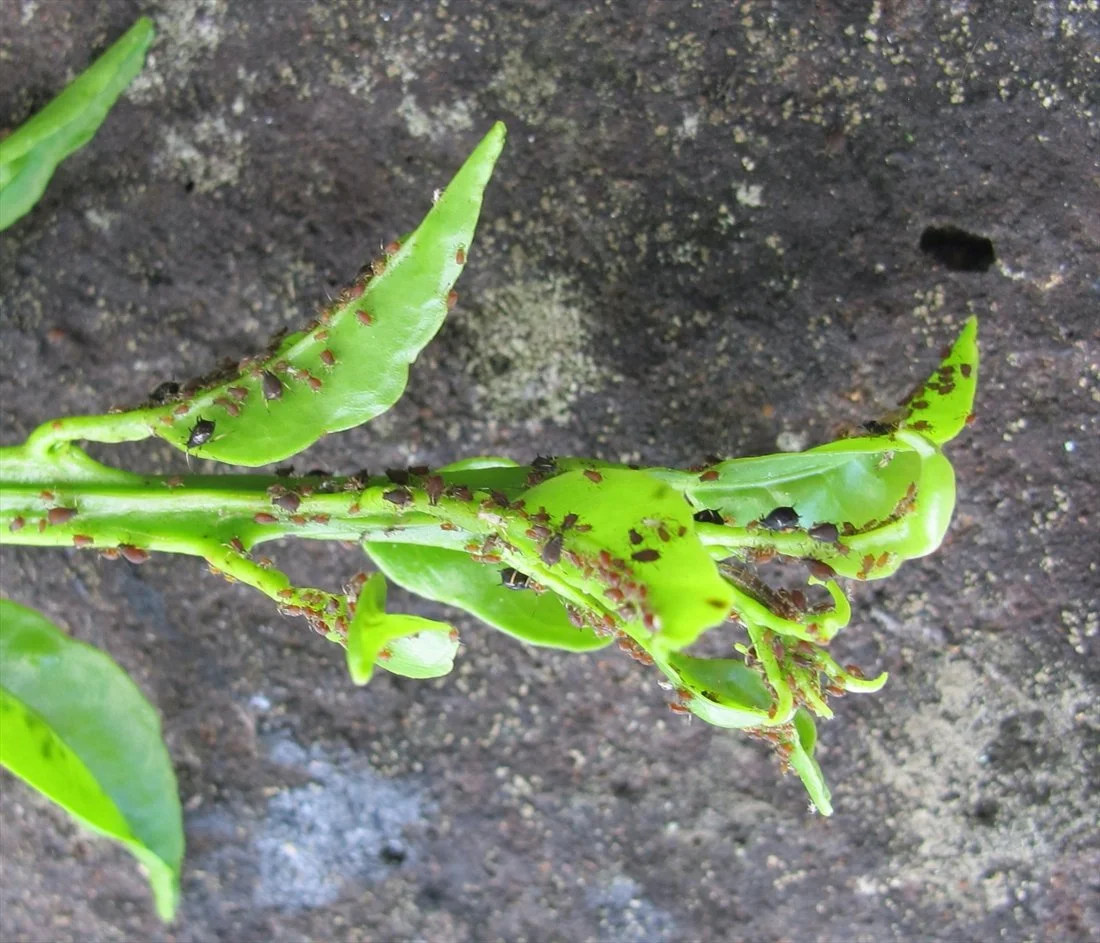Citrus Pests to Watch for This Summer in Redlands, CA
Know Your Pests to Keep Your Citrus Trees Healthy and Productive
As the warm months settle in, citrus trees in Redlands are thriving — but so are the pests. Staying ahead of pest pressure is key to maintaining healthy, productive trees, especially in our region where citrus is such a popular choice for backyards and small orchards. Here are three of the most common citrus pests to look out for this time of year:
🐛 Asian Citrus Psyllid (ACP)
Asian Citrus Psyllid - Diaphorina citri
This tiny insect is more than just a nuisance — it's a serious threat. The Asian Citrus Psyllid can transmit Huanglongbing (HLB), also known as citrus greening disease. Once a tree is infected, there is no cure. ACPs are tiny, mottled brown insects that feed on young citrus leaves and shoots. Look for distorted, curling leaves and the insect’s waxy excretions on new growth.
Control Tips:
Regularly inspect new flushes of growth.
Avoid unnecessary pruning that encourages excess flush.
Use yellow sticky traps and consider spraying horticultural oils or insecticidal soaps.
Report any sightings to your local ag commissioner’s office.
🍃 Citrus Leaf Miner
Citrus Leaf Miner - Phyllocnistis citrella
These larvae burrow into tender young leaves, creating winding trails or “mines” and causing leaves to curl and distort. While mostly cosmetic, heavy infestations can weaken young trees and reduce photosynthesis.
Control Tips:
Avoid pruning during active flush periods (usually late spring through summer).
Don’t over-fertilize — excessive nitrogen leads to more flush growth that attracts the leaf miner.
Use pheromone traps to monitor activity.
Spinosad-based sprays can help if applied when new growth is just emerging.
🦟 Aphids
Citrus Aphids - Various Species
Especially active during spring and early summer, aphids cluster on new shoots, feeding on sap and excreting sticky honeydew, which can lead to sooty mold. They can also transmit viruses and stunt growth.
Control Tips:
Encourage beneficial insects like ladybugs and lacewings.
Blast them off with water or apply insecticidal soap early in the morning.
Avoid broad-spectrum insecticides that harm natural predators.
Final Thought
Healthy trees are naturally more resistant to pests. Make sure your citrus trees are well-irrigated, properly fertilized, and pruned appropriately. If you're unsure about what you're seeing or how to respond, reach out — Cambium Tree Experts is here to help protect your trees year-round.
📞 Call or Text: 909-855-1447
🌐 www.cambium.pro





